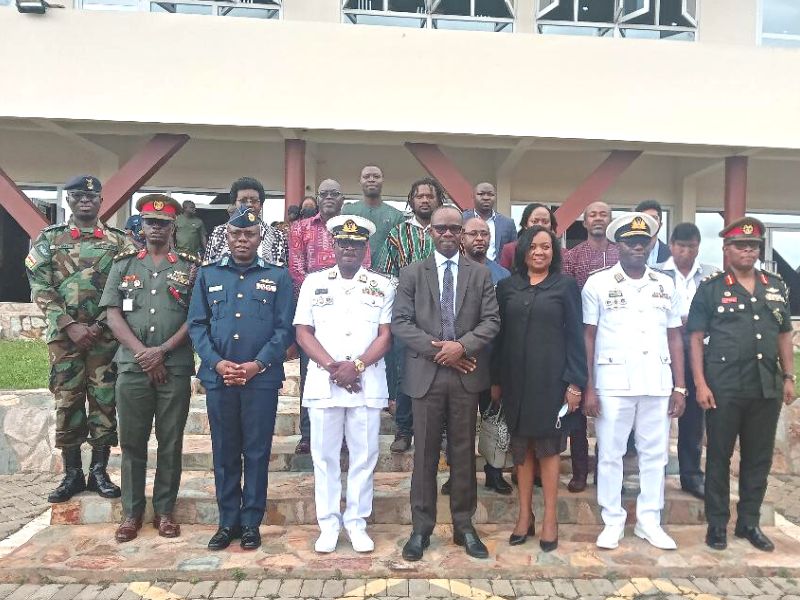
In three months the Ghana Armed Forces (GAF) identified a total number of 28 cyber security incidents, much of which were perpetrated by scammers, recording eight cases on July, 10 in August, and another 10 in September.
According to the GAF, over the past five years, cyber incidents and grand statistics showed that fraud was the most commonly reported crime.
As a result, the Chief of Defence Staff, Vice Admiral Seth Amoama, said cyber security had emerged as the fifth domain of warfare alongside the traditional ones – land, sea, air, and space.
He said cyberspace had become a safe haven for terrorists, violent extremists, and other miscreants giving oxygen to their nefarious activities, including hacking, data leakages, social engineering schemes, and fraud.
Vice Admiral Amoama was speaking at the launch of the Ghana Armed Forces Cyber Security Awareness Month held under the theme: “Regulating cyber security in the public-private sector collaboration” in Accra last Friday.
The CDS advised that in addition to weaponising the military for protection of territorial integrity, cyber security should be generic in the operational efforts of any forces in the world.
In the light of this growing danger, he said: “As the Ghana Armed Forces take steps to protect its Critical Information Infrastructure (CII), I want to assure all that efforts are being made for every member of the GAF to understand the cyber threats, vulnerabilities and their impacts on mission readiness.”
He opined that protection of the Army’s cyberspace was necessary in reducing risk and making the personnel – all the ranks and file – understand the importance of cyber hygiene and the implication of social media on security.
Vice Admiral Amoama stressed that “as part of the measure being taken by GAF to enforce a cyber-culture change amongst its personnel and course participants in all GAF training schools to be introduced to the concept of cyber security and security implications of social media.”
The CDS asserted that it is becoming increasingly necessary for GAF to introduce these strategies because it does not want to be left out in the implementation of the paperless system, which requires cyber protection to guarantee system integrity, robustness, and resilience.
The Acting Director of the National Cyber Security Authority (CSA), Dr. Albert Antwi-Boasiako, mentioned that one of the most important components in the fight against cyber threats is keeping internal systems and networks intact.
According to him, unprotected cyberspace has the potential to cause destruction to the economic and social security of the country,
Dr. Antwi-Boasiako noted that such threats can best be handled through collective engagements and collaboration between the public and private sectors.
He thanked GAF for the collaboration and urged the other members of the Joint Cyber Security Committee (JCC) to come up with national cyber defence programmes to serve as a blueprint for the development of national cyber policies to protect and defend Ghana’s interest in cyberspace.
About the awareness
Cyber security awareness month is held every October and as part of this year’s activities, there would be workshops, lectures, demonstrations, training sessions, and the use of social media by all ranks.
There would also be education on the Cyber Security Act and another regulative mechanism.
In short videos shown at the launch, the personnel were urged to desist from sharing or leaking classified documents to the media, inserting their personal drives into GAF computers, and doing social media live while at work.
It was advised that all these practices would make GAF vulnerable and exposed to attacks.







